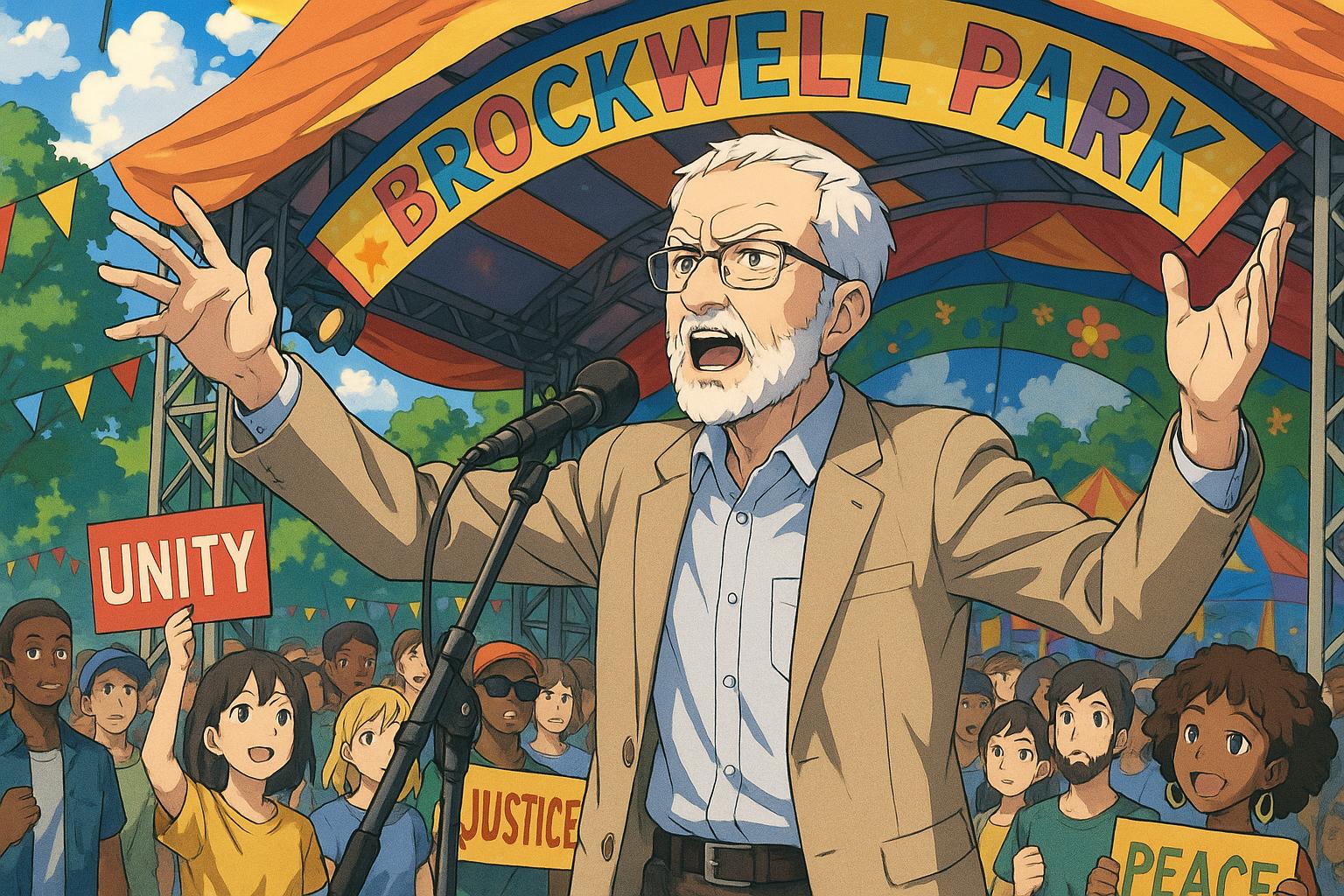Jeremy Corbyn recently took aim at Sir Keir Starmer for his controversial remarks regarding immigration, particularly the phrase “island of strangers.” Speaking at the Wide Awake Festival in Brockwell Park, London, he asserted that such language perpetuates division and echoes the rhetoric of the past. “Let’s hear no more of this nonsense spoken by some about this being a country of strangers,” Corbyn urged, drawing a parallel to the infamous “rivers of blood” speech delivered by Enoch Powell in 1968. Corbyn, who now serves as an independent MP after losing the Labour whip, highlighted the UK's rich diversity as its strength. “Our community, our strength, our joy, our lives, our hope is our diversity, is our different backgrounds,” he continued, underscoring what he believes makes London exceptional.
Starmer's alarm over the risk of the UK becoming an “island of strangers” formed a part of his broader immigration policies aimed at controlling rapid net migration, which has quadrupled since 2019. His approach has drawn mixed responses within the Labour Party, with many critics, including Corbyn, accusing him of adopting language reminiscent of right-wing rhetoric. This not only alienates traditional Labour supporters but also risks igniting tensions over issues that have long been contentious in British politics.
Corbyn’s critique did not end with immigration; he further lambasted the government regarding military contributions to Israel during ongoing conflicts. He called for an end to British arms sales to Israel, specifically referencing how UK-supplied equipment is implicated in violence against Palestinian civilians. He passionately urged attendees to join demonstrations supporting the Palestinian plight, declaring that Britain’s complicity in military actions necessitates public outcry. “So when we have the demonstrations in support of the Palestinian people – please be there, raise your voice. It matters by giving inspiration to those people going through the most ghastly times of their lives,” he implored, reinforcing his long-standing stance on humanitarian issues.
Furthermore, Corbyn’s advocacy extended to economic reforms during his address. He prompted Labour and the broader political climate to reconsider taxation policies, specifically calling for increased taxes on the wealthy to fund public services. “You can’t achieve equality and justice if you extol the virtues of billionaires and do nothing about taking money off them to pay for the decent services for the many,” he stated, making clear his belief that economic disparities must be addressed to foster a fairer society.
The Wide Awake Festival, where Corbyn spoke, is part of a series of events occupying Brockwell Park that have drawn attention—both for their cultural significance and the opposition they’ve faced from local residents. Some residents have taken legal action against Lambeth Council for allegedly bypassing planning regulations by allowing these festivals, and have received support from the High Court which deemed the council’s actions “irrational.” Despite this ruling, the festivals have continued, reflecting the ongoing tensions between urban cultural events and community concerns about public space.
As Corbyn continues to define his post-Labour narrative, his arguments resonate with a segment of the public increasingly anxious about issues of both diversity and social justice. It remains to be seen how these critical discussions will shape the future direction of British politics, especially under a Labour leadership that appears to be cautiously navigating a balance between traditional values and contemporary realities.
Reference Map:
- Paragraph 1 – [1], [2]
- Paragraph 2 – [1], [4]
- Paragraph 3 – [1], [5], [6]
- Paragraph 4 – [2], [3]
- Paragraph 5 – [1]
Source: Noah Wire Services
